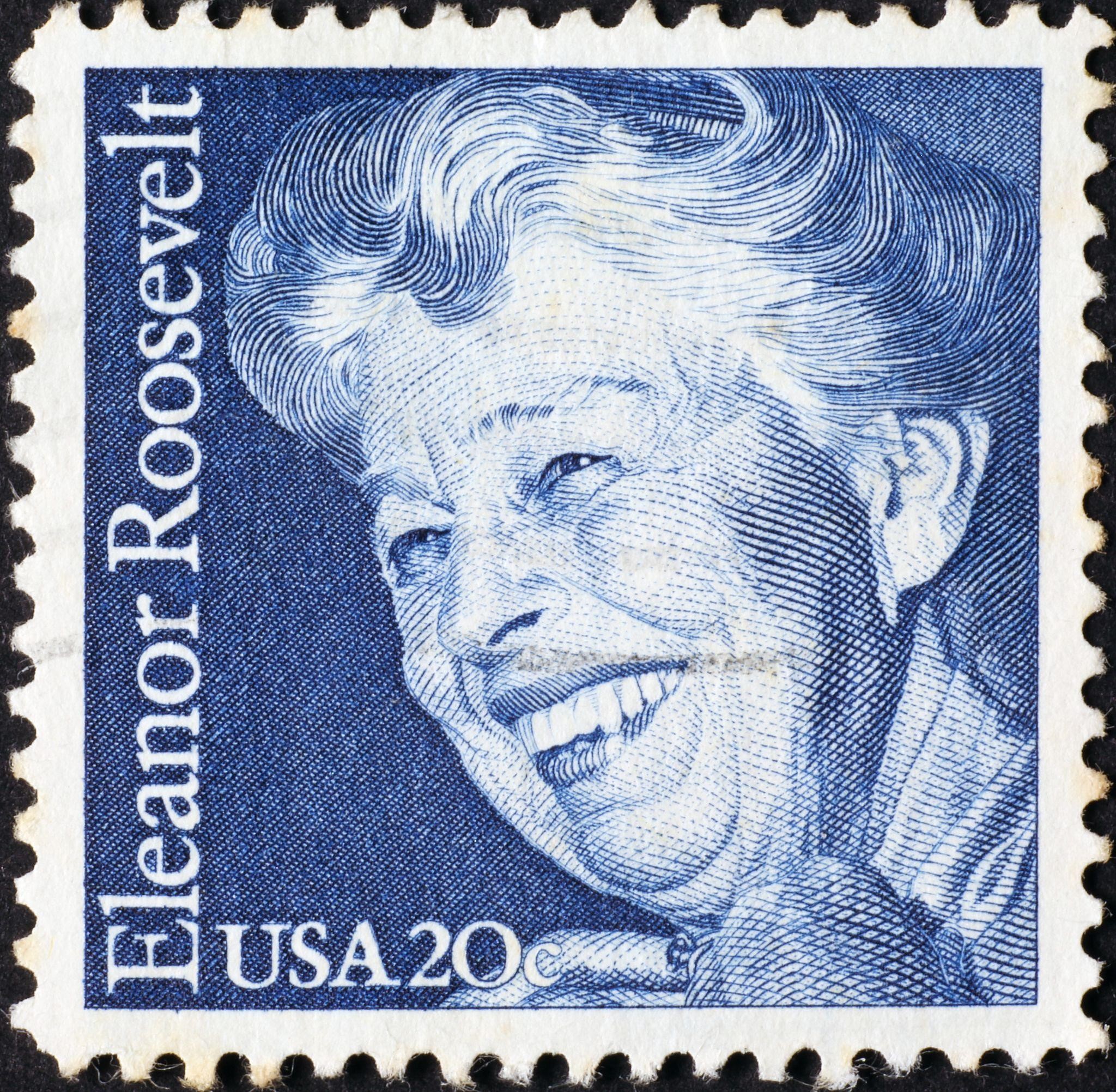THE WORLD’S #1 EXECUTIVE COACHING AND BUSINESS COACHING BLOG SINCE 2017.
Unlocking the Leadership Secrets of Eleanor Roosevelt: A Timeless Guide to Authenticity
December 1, 2023 | Category: Blog, Intelligent Leadership | Last updated on: June 3, 2025

Eleanor Roosevelt’s leadership will never cease to be a model for leaders who understand the power of empathy, justice, and servant leadership. In addition to countless leadership lessons, Eleanor Roosevelt’s life doubles as a rich source of positive leadership references that coaches and their clients can use as inspiration.
“You must do the thing you think you cannot do.” – Eleanor Roosevelt.
The longest-serving first lady of the United States, Eleanor Roosevelt, is an archetypal servant leader whose commitment to serve, encourage, and reassure others remains a source of inspiration and positive leadership references for leaders and leadership coaches to this day.
The Making of a Leader: Eleanor Roosevelt’s Journey Through Loss, Trauma, and Transformation
Born in New York in 1884 to socialite parents, she had her childhood marred by tragedy and forever-lasting trauma. Her mother was a cold woman. And her father, whom she loved, was an alcoholic who couldn’t overcome the addiction.
By the time she turned 10, she was an orphan and a bearer of irreparable psychological damage.
Later in life, her childhood trauma resurfaced, rendering her unable to build meaningful emotional connections with her children.
Having married her fifth cousin once removed, Franklin Delano Roosevelt, she found her calling as the first lady of the US.
Eleanor Roosevelt’s Leadership Style
Eleanor Roosevelt’s leadership on human rights and social activism is a testimony to the inspiration that historical leadership can give today’s corporate leaders.
Great leadership inspires. And it transcends time and space. Leaders interested in developing their influence and abilities understand how historical leadership can help them achieve their goals.
As someone with a direct interest in historical leadership lessons, I cannot afford to overlook examples of dedicated servant leadership like Eleanor Roosevelt’s, especially when so many of her leadership principles coincide with those I espouse.
People like Eleanor Roosevelt have shown the world what servant leadership is before leadership coaches like myself dissected and defined its components.
Their leadership examples are, beyond doubt, timeless guides to leadership authenticity, character, and personal growth.
Understanding Eleanor Roosevelt
Deprived of her parents’ guidance and leadership from early childhood, Eleanor Roosevelt found the mentor she needed in Marie Souvestre, the headmistress of the prestigious Allenswood Academy in Wimbledon, which she attended from the age of 15.
Her time at Allenswood was transformational. Under Souvestre’s influence, Eleanor:
- Developed a strong belief in social justice and personal responsibility
- Cultivated leadership skills grounded in empathy and conviction
- Learned to form and voice her own beliefs, a trait that would define her public life
These foundational experiences gave her the confidence and clarity to support her husband, Franklin D. Roosevelt’s, political ascent.
After FDR contracted polio and the two of them settled an affair-related rift in their marriage, Eleanor became FDR’s full-fledged political partner. She was in the perfect position to help others and effect positive change. And that she did, with all her heart and physical strength.
The First Lady of World War II: A Model of Purpose-Driven Leadership
Amid the turmoil of World War II, she visited hospitals, raised funds for veterans, pushed for the racial desegregation of the army, and tirelessly championed women’s rights. Reporters often found it impossible to keep up with her schedule.
From the technical perspective of a leadership coaching specialist, she embodied:
- Resilience: She absorbed and overcame significant childhood trauma to emerge as an inspirational leader.
- Political and technical savvy: ER understood the importance of economic security, equal pay, and racial desegregation and knew what political levers to use to achieve her goals.
- Moral Courage: ER never hesitated to voice her convictions against strong political headwinds. Her political interventions were instrumental in ending race-based segregation in concert auditoriums and the army.
- Authentic Communication: She connected with people, talked directly to them, and electrified the room she entered.
- Service and Contribution: ER was deeply committed to providing meaningful help for the underprivileged through education.
- Optimism: She once reportedly said that pessimism was “politically incorrect.”
Champion of Global Values and Women’s Voice
After her tenure as First Lady, Eleanor Roosevelt continued her public service on a global scale. In 1945, President Harry Truman appointed her as a delegate to the newly formed United Nations.
There, she was selected to chair the U.N. Human Rights Commission, where she led a multinational team through months of difficult negotiations to draft what would become the Universal Declaration of Human Rights.
Roosevelt and the Universal Declaration of Human Rights
Roosevelt’s leadership was marked by her deep moral conviction, political skill, and ability to bridge ideological divides.
Her guidance helped ensure that the document was not just aspirational, but actionable—a foundation for international human rights law that still stands today.
The Universal Declaration, adopted in 1948, is one of her most enduring contributions to global leadership.
Elevating Female Reporters and Redefining the Role of First Lady
While in the White House, Eleanor Roosevelt transformed the traditionally ceremonial role of First Lady into a platform for policy influence and social change.
One of her most impactful innovations was holding regular press conferences exclusively for female reporters—a bold move designed to ensure that other women in journalism retained their jobs and gained access to political reporting.
Press Conferences and Pathways: How Roosevelt Created Opportunities for Other Women in Leadership and Media
At a time when many newspapers excluded women from covering national affairs, Eleanor Roosevelt used her position as First Lady to challenge the norm and change the game.
- She held over 300 press conferences exclusively for female reporters. This strategic move ensured that women journalists retained their jobs and gained unprecedented access to political reporting during a time when most were sidelined.
- She insisted on professional recognition for women in media. By excluding male journalists from these sessions, she forced news outlets to hire or assign other women to cover her—a quiet revolution in media representation.
- She openly challenged political figures—even within her own party. Roosevelt was unafraid to disagree with senior leaders, including the Vice President, when moral issues were at stake, reinforcing her role as an independent and values-driven leader.
- She modeled inclusive, courageous leadership in action. Her deliberate use of influence helped redefine what leadership could look like—not just for women in the press, but for all women aspiring to lead.
By using her voice with purpose and consistency, Eleanor Roosevelt paved the way for generations of women leaders, proving that access, equity, and integrity are not just ideals but leadership imperatives.
Authenticity and Character
Eleanor Roosevelt’s leadership integrity was unquestionable due to the character and personal integrity behind it. She had learned well how to form her convictions and knew how to voice and impose them. She was also as transparent as she was adamant about her goals.
Her actions gave genuine weight to her convictions. And she was never shy to act. When the Daughters of the American Revolution discriminated against an African-American opera singer, she canceled her membership and organized a major event to support the slighted party.
Alarmed by her anti-racism stance and actions, the Ku Klux Klan put a bounty on her head worth $25,000.
ER didn’t let danger and adversity deter her.
Leaders who achieve alignment between their actions and convictions are highly inspirational in the business world. People sense strength of character, authenticity, and courage. And they respond positively to these leadership traits.
“Courage is the greatest character element any leader must possess because, in the face of crisis, it is the catalytic agent that mobilizes every other virtue.”
— John Mattone, Intelligent Leadership – Chapter 4: Courage
Personal Growth and Continuous Learning
Eleanor Roosevelt always valued the power of education. She saw it as an effective, transformative tool in the fight against poverty. She also knew how to use it for her personal growth and fulfillment as a leader.
Her commitment to personal growth was clear in her adaptability and open-mindedness. She sought guidance from mentors and engaged in self-reflection, questioning, and examining the validity of her beliefs.
Self-Reflection Is a Core Discipline for Every Great Leader
In the wake of her husband’s 1918 affair with Lucy Mercer, ER chose the path of self-reflection, reassessing her priorities and values instead of succumbing to the looming scandal.
She later used her daily newspaper column titled My Day to analyze and examine her opinions and positions on various matters, from current events to deep-rooted social issues.
Self-reflection is the root of continuous learning and self-improvement. Leaders who routinely engage in self-reflection find it easier to identify their strengths and weaknesses and how they can improve.
For a leadership coaching professional, helping clients develop a proclivity for self-reflection is a top priority and goal.
Lessons for Today’s Business Leaders
The principles of servant leadership have always been and will always be relevant for leadership success. ER provides many leadership lessons above and beyond these principles, however.
Her resilience in defining moments of her life, clear-headed thinking, and ability to determine the best course of action are praiseworthy. Other actionable lessons for today’s leaders that ER has to offer are:
- Boundless courage. Inspirational leaders are unwavering in their convictions and act as anchor points for other members of their organizations in terms of values-to-actions alignment.
- Leadership character and integrity. Leaders who successfully align their leadership principles, values, and actions find it easy to earn trust and inspire their reports.
- Servant leadership is about investing in the well-being of others. Effective, inspirational leaders don’t place their personal interests above those of their employees and organizations.
- Clear and concise communication through diverse mediums was one of the pillars of Eleanor Roosevelt’s leadership. Successful leaders are more persuasive due to their superior communication skills.
- Focus on others’ personal growth. A constant focus on personal growth is an indispensable component of leadership success. Outstanding leaders understand the role of personal growth in their success and help others become more successful by focusing on their personal growth.
Timeless Traits: What Eleanor Roosevelt Teaches Us About Authentic Leadership Today
As a leadership development specialist, I try to find leadership lessons and examples of successful leadership that can inspire my clients.
I consider Eleanor Roosevelt’s leadership one of the most fertile sources of such leadership lessons. The lessons her exemplary leadership offers align perfectly with the leadership principles I value and observe.
Eleanor Roosevelt’s defining leadership traits align perfectly with the traits modern leadership coaching specialists consider essential for inspirational, effective servant leadership.
These traits made ER a symbol of progressive leadership back in her day and continue to inspire forward-looking, socially sensitive leadership and resilience today.
Applying Eleanor Roosevelt’s Wisdom
Incorporating elements of Eleanor Roosevelt’s leadership style in your leadership is a relatively straightforward exercise, in theory. You can start by learning to listen actively and developing strong communication skills. Here’s what else you can do:
- Demonstrate empathy and genuine concern for the well-being of people under your leadership.
- Be transparent and authentic in your approach to leadership.
- Invest in the well-being and personal development of those under your leadership.
- Be courageous and stay true to your values and organizational interests, even in the face of adversity.
- Be resilient when facing setbacks and use them as learning opportunities.
- Encourage open, honest conversations.
The shortest path to successful leadership requires authenticity, a strong character, and an unwavering focus on personal growth. Make these leadership objectives your top priorities, and watch your influence grow.
Authenticity is the key to magnetic leadership.
Eleanor Roosevelt: A Living Model of Intelligent Leadership
When I reflect on the core of Intelligent Leadership—the integration of inner-core strength and outer-core leadership capability—I see Eleanor Roosevelt as one of the most powerful historical examples of this alignment in action.
At the heart of Intelligent Leadership is the belief that great leadership begins within. It starts with character, values, self-awareness, and emotional maturity—the inner core—and radiates outward through the skills and behaviors leaders use to influence and execute—the outer core.
Eleanor Roosevelt mastered both.
- Grounded in Deep Character: Eleanor Roosevelt’s inner core strength was forged through personal adversity, including early loss and emotional hardship.
- Embodied Core Values: Her compassion, humility, and moral courage were genuine, formed through lived experience and constant reflection.
- Developed Outer-Core Competencies:
- Practiced authentic, connective communication.
- Exercised political influence with integrity.
- Demonstrated relentless execution in pursuit of justice and equity.
- Lived from the Inside Out: Her leadership was deeply aligned—who she was on the inside powered how she led on the outside.
- A Timeless Blueprint: Roosevelt’s life is more than a historical account—it’s a model for anyone striving to lead with authenticity, courage, and impact.
“You can employ all the tactics, tools, and strategies in the universe, but if you aren’t able to get in touch with this deeper sense of purpose… the impact you’re able to make will be severely limited.”
— John Mattone, The Intelligent Leader – Epilogue: What Will Be Your Legacy?
Conclusion
Eleanor Roosevelt overcame significant childhood trauma to become one of the most iconic servant leaders of the 19th century. The longest-serving First Lady of the United States, she fought for human rights against racial segregation and other forms of social injustice. She supported women’s rights and universal human rights.
She was a master communicator who never failed to act on her convictions. Undeterred by disapproval and danger, she applied passion to everything she did.
Endowed with an outstanding leadership character, she focused on personal growth and development, seeing education as an effective tool to combat poverty and social problems.
Each year, especially during Women’s History Month, Eleanor Roosevelt’s servant leadership continues to inspire a new generation of leaders, particularly those championing equity, empathy, and the empowerment future change-makers
Schedule a free discovery session today and explore how John Mattone Global and Intelligent Leadership Executive Coaching can help you lead authentically, empower others through service, and create a lasting impact.




